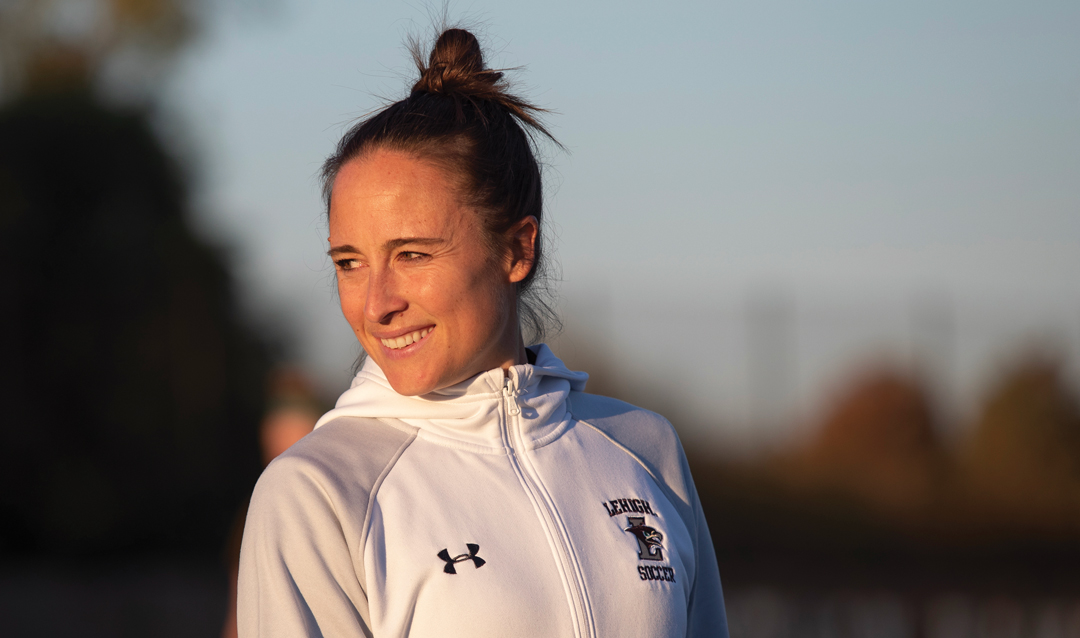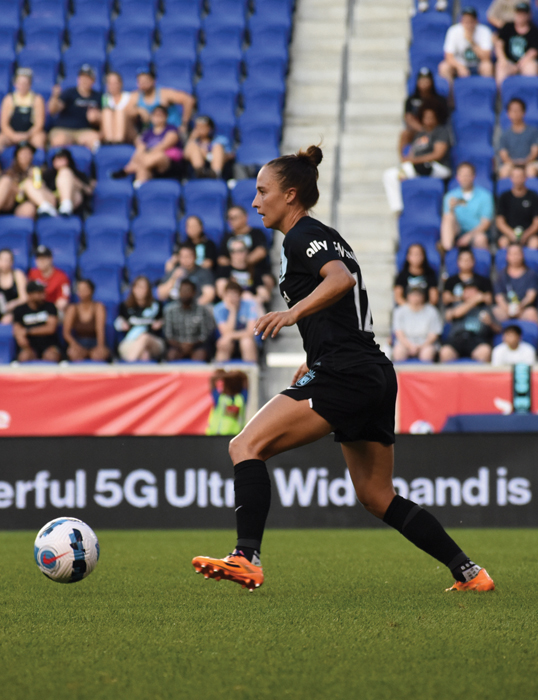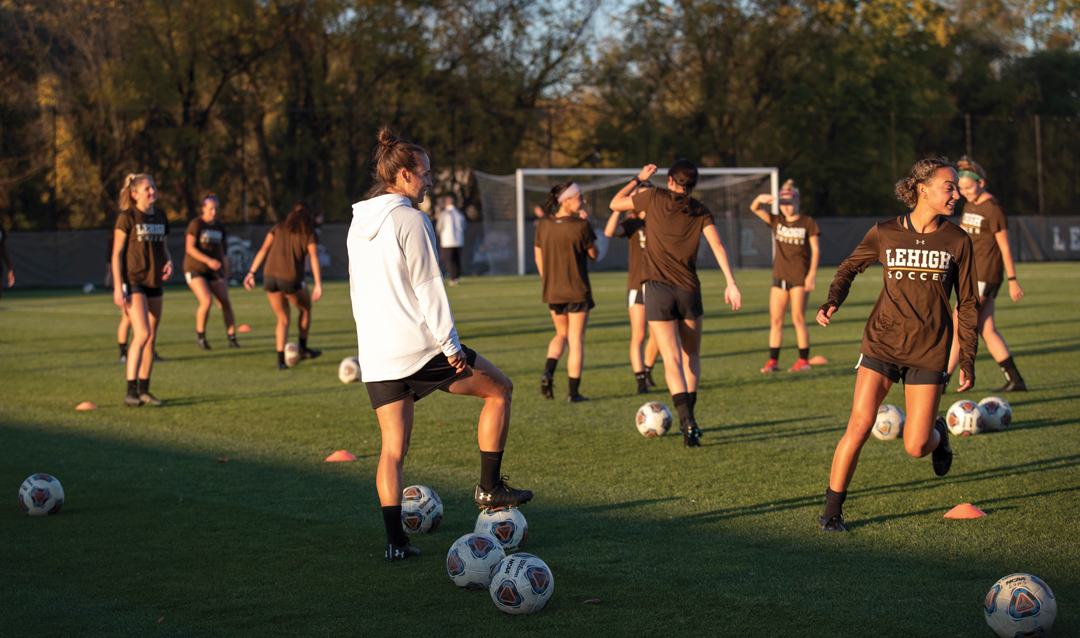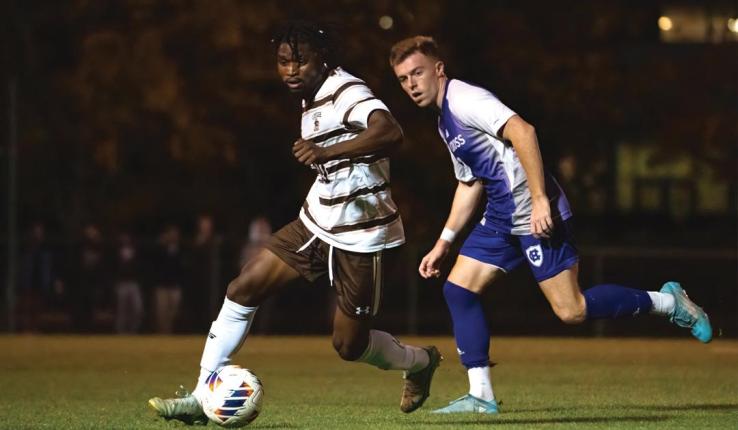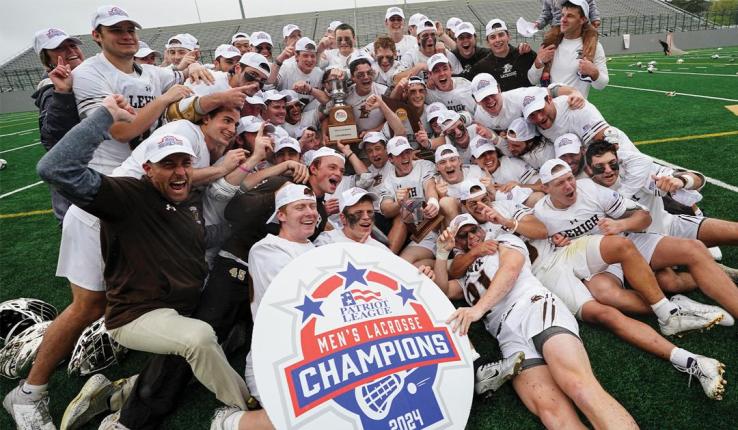After a 15-year professional career—12 of which was spent internationally between FFC Frankfurt and FC Bayern Munich—Gina Lewandowski ’07 retired from NJ/NY Gotham FC of the National Women’s Soccer League (NWSL) in July 2022 and returned to Lehigh as an associate head coach of the women’s soccer team. Lewandowski, who played in a friendly with the U.S. Women’s National Team in 2015, is the leader in career game-winning goals (15) at Lehigh, second in goals (36) and points (80), was the 2003 Patriot League Rookie of the Year and won back-to-back Patriot League Player of the Year honors in 2004 and 2005.
WHY DID YOU DECIDE TO RETURN TO LEHIGH?
Lehigh was very influential in my career and personal development, both on the field and off the field. It set me up for my success and I had a lot of pride in Lehigh, the program and the community that Lehigh provided me throughout my four years. I was connected with Lauren Calabrese, the head coach, because we grew up together and played soccer together. And I always knew I wanted to coach. I didn't know what level or where that would be, but then Lauren assumed the head coaching position last spring and reached out. … [I’m excited] to have an opportunity back at my school, and hopefully share what I have taken from the school and my career and give back to the next generation and maybe inspire some other athletes. But most importantly, help them grow and develop as human beings.
DESCRIBE THE TRANSITION FROM PLAYER TO COACH.
Mapping transitions are always difficult. It can be challenging. I've coached now and again during my career, but this is a full-time position where I completely went from playing to coaching and being more of a leader next to the field versus on the field. It's been a period of excitement, of mixed emotions, growing as an individual, realizing that I can't really perform on the field in a way that I used to, but now I'm trying to collaborate with a coaching staff and lead the girls in a different way. It's been a humbling experience, a challenging experience, but it’s been exciting to work alongside the staff at the women's soccer program.


